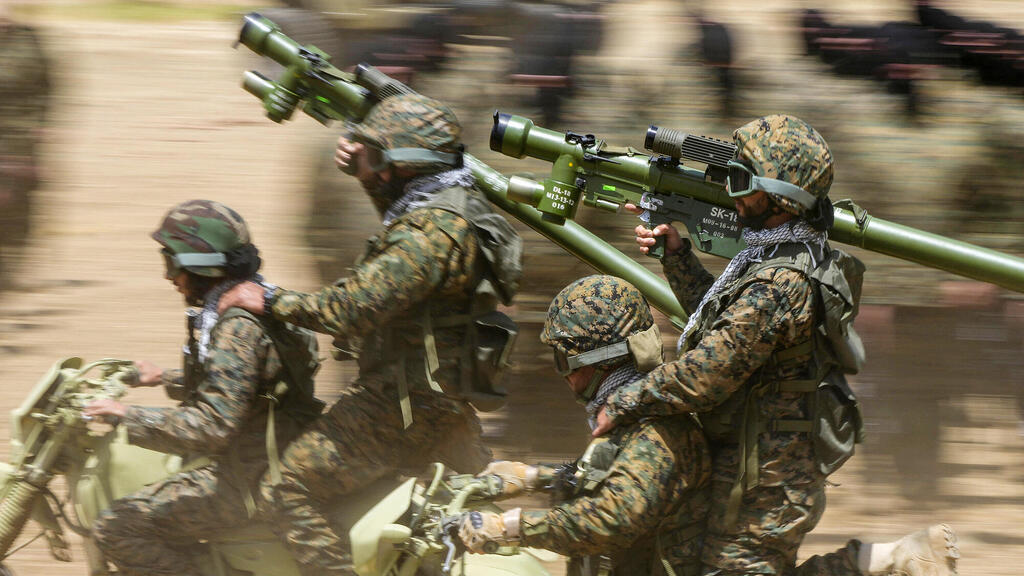
Israel launched a preemptive strike on Hezbollah, thwarting an attack on intelligence bases and the Mossad headquarters
Flights from Ben Gurion Airport have resumed and indices on the Tel Aviv Stock Exchange rose in response to the recent security incidents.
In a large-scale military operation that began early Sunday morning, the Israeli Air Force launched airstrikes against Hezbollah targets in southern Lebanon. This action followed precise intelligence indicating that the terrorist organization was making advanced preparations to launch a barrage of rockets and missiles toward central Israel.
The timely intelligence allowed our forces to preempt the attack and thwart Hezbollah's plans. During the operation, thousands of rocket launchers of various types were destroyed, including high-precision rockets intended to strike strategic targets in Israel, such as the 8200 intelligence unit headquarters, the Mossad command center, and Ben Gurion International Airport. Concurrently, naval vessels successfully intercepted several unmanned aerial vehicles carrying explosive payloads that were en route from Lebanon to central Israel.
According to statements released by Hezbollah, the rockets it managed to launch this morning represent the first wave, claiming to have hit 11 targets in northern Israel with approximately 320 launches. Fortunately, the injuries in the north were not severe, and it can be said that in this initial phase, no Israelis were killed by Hezbollah fire, according to the terrorist organization's claims.
Following the preemptive Israeli strike in Lebanon and Hezbollah’s simultaneous attack, there were disruptions in takeoffs and landings at Israel's international airport. However, the Airports Authority announced this morning that the airport has returned to full operation, including both takeoffs and landings. Out of 360 scheduled international flights (inbound and outbound), 50 were canceled.
Defense Minister Yoav Galant declared a "special state of emergency" across Israel this morning for 48 hours, until Tuesday at 6:00 a.m. A "special situation on the home front" had been in effect nationwide between October 7 and the end of May, after which it was limited to certain parts of the north and south. Now, this status has been reinstated across the entire country. However, after assessing the emergency situation, it was decided to remove the restrictions of the Home Front Command from central Israel to the north.
The declaration of a "special situation on the home front" nationwide is intended to adapt Israel's operations to an emergency scenario in which the civilian population is at risk, primarily by expanding the military's authority, such as the power to mandate shelter-in-place orders.
The indices on the Tel Aviv Stock Exchange (which operates on Sundays) rose in response to the recent security incidents. Market analysts suggest that if it becomes clear that Hezbollah’s response has concluded and further escalation is unlikely, this would be positive news for the markets, aligning with the upward trend seen in global markets over the weekend. Analysts maintain that barring any significant geopolitical escalation or sharp declines in global markets, the local market is expected to reach new all-time highs in the coming weeks, and this outlook remains unchanged.















